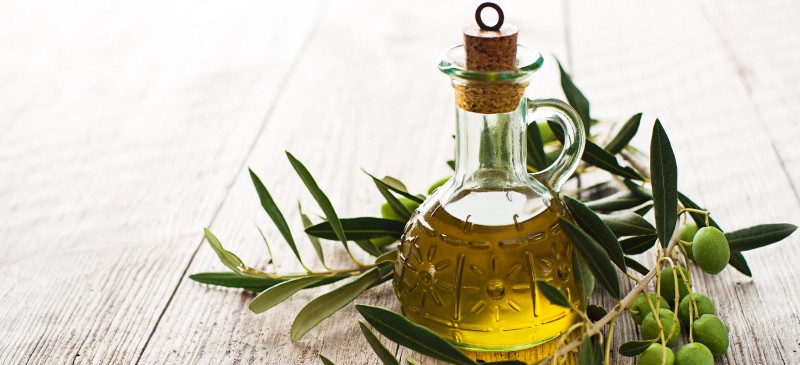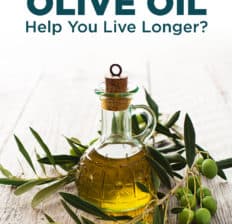This Dr. Axe content is medically reviewed or fact checked to ensure factually accurate information.
With strict editorial sourcing guidelines, we only link to academic research institutions, reputable media sites and, when research is available, medically peer-reviewed studies. Note that the numbers in parentheses (1, 2, etc.) are clickable links to these studies.
The information in our articles is NOT intended to replace a one-on-one relationship with a qualified health care professional and is not intended as medical advice.
This article is based on scientific evidence, written by experts and fact checked by our trained editorial staff. Note that the numbers in parentheses (1, 2, etc.) are clickable links to medically peer-reviewed studies.
Our team includes licensed nutritionists and dietitians, certified health education specialists, as well as certified strength and conditioning specialists, personal trainers and corrective exercise specialists. Our team aims to be not only thorough with its research, but also objective and unbiased.
The information in our articles is NOT intended to replace a one-on-one relationship with a qualified health care professional and is not intended as medical advice.
Olive Oil and Longevity: Can It Help You Live Longer?
February 9, 2022

Researchers have known for decades that olive oil consumption can help lower cardiovascular disease risk, but its associations with other causes of mortality (death) is less clear. Now, new research has shown the connection between olive oil and longevity.
A January 2022 study published in the Journal of the American College of Cardiology had the purpose of evaluating whether olive oil intake is associated with specific causes of death among adults living in the U.S.
The findings revealed a link between olive oil and longevity. This doesn’t come as much of a surprise, considering that olive oil is filled with healthy monounsaturated fats, antioxidants, including phenolic compounds, and vitamin E, all of which support healthy aging.
Study Findings on Olive Oil and Longevity
Researchers involved in the Journal of the American College of Cardiology study evaluated dietary data from 60,582 women and 31,801 men over the course of several decades. At the start of the study all participants were free of cardiovascular disease and cancer. Every four years the participants’ diets were assessed.
The study findings demonstrated that higher olive oil intake was associated with lower risk of total and cause-specific mortality, meaning the risk of dying overall and the risk of drying from specific diseases. Replacing margarine, butter, mayonnaise and dairy fat with olive oil was also associated with lower risk of mortality.
Here are some of the main findings regarding the connection between olive oil and longevity:
- Higher olive oil intake (more than half a tablespoon per day) was associated with 19% lower risk of dying from cardiovascular disease.
- People who consumed more olive oil had a 17% lower risk of cancer mortality.
- High intake also led to 29% lower risk of neurodegenerative disease death and 18% lower risk of respiratory disease death.
When participants replaced 10 grams (about 1 tablespoon) of margarine, butter, mayonnaise and dairy fat with the equivalent amount of olive oil they were found to have between 8% and 34% lower risk of death during the study.
How to Add Olive Oil to Diet
Why is olive oil good for longevity?
Olive oil has been shown to help fight oxidative stress, high cholesterol, high blood pressure, insulin resistance and inflammation affecting the arteries. It can also support healthy levels of good “HDL” cholesterol, skin health, brain health and even a healthy gut microbiome.
New research shows that olive oil reduces brain inflammation, can help prevent against Alzheimer’s disease and, very importantly, activates a process known as autophagy. What does this mean exactly, and how does olive oil trigger autophagy?
Autophagy is the process by which cells break down and clear out debris and toxins in the brain, such as amyloid plaques that can lead to cognitive decline. In other words, olive oil helps keep the brain acting young and sharp.
When shopping for olive oil, keep in mind that not all types are created equal.
- Look for oil labeled as extra virgin and ideally cold-pressed or expeller-pressed.
- Check the label for a seal from the International Olive Oil Council, which certifies the type of oil used.
- How can I extend the life of my olive oil? Shop for oil that comes in a dark glass bottle that can protect light from entering and damaging the vulnerable fatty acids. Keep it in a cool, dry place away from heat.
Here are some simple ways to add more your diet. Aim for about one to three tablespoons per day of 100% olive oil for the most health benefits:
- Use this oil as a dip and for making salad dressings, dips and marinades. For a quick and healthy dressing, combine it with several tablespoons of balsamic vinegar and a small amount of dijon mustard.
- Because virgin olive oil doesn’t stand up to high heat very well, only cook with it at low temperatures. Add some to your pan when sautéing vegetables or making eggs.
- Top veggies, rice or whole grains with a bit of olive oil. You can also roast, grill, sauté or steam vegetables and then add seasoning and olive oil when they’re finished cooking.
- Using extra virgin olive oil in pesto, hummus, spreads and raw soups, or to finish off pizza, pasta dishes and soups after they’re done cooking.
Conclusion
- A January 2022 study found an association between olive oil and longevity.
- How does olive oil slow aging? Because it’s filled with antioxidants and healthy fats, higher olive oil intake is associated with lower risk of death, including from heart disease, cancer, neurological diseases and respiratory illnesses.
- Replacing margarine, butter, mayonnaise and dairy fat with olive oil is also associated with lower risk of mortality.
- Aim to have one to three tablespoons of quality olive oil per day, especially in replace of less healthy fats. Use it as a dressing, in dips and when cooking at low temps.




